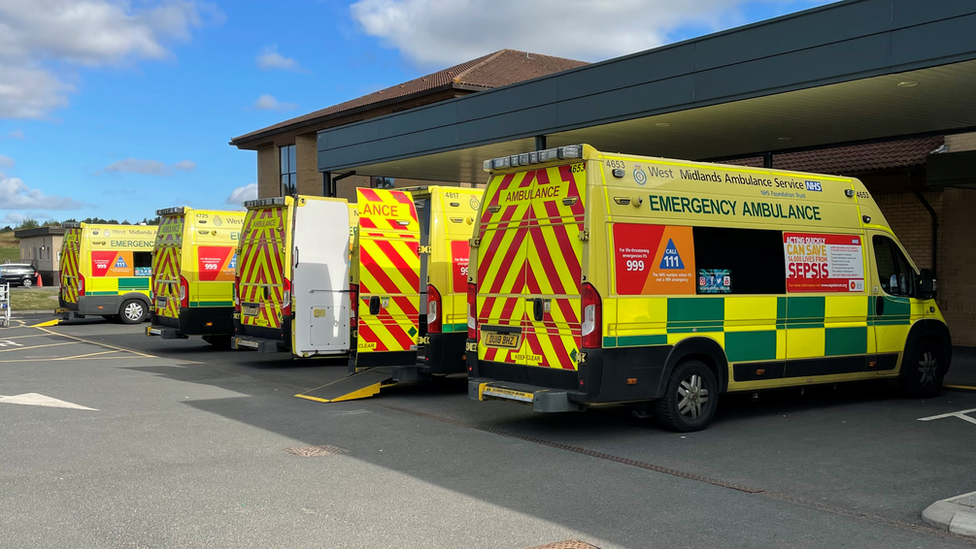Report finds West Midlands ambulance whistle-blowers stifled
- Published
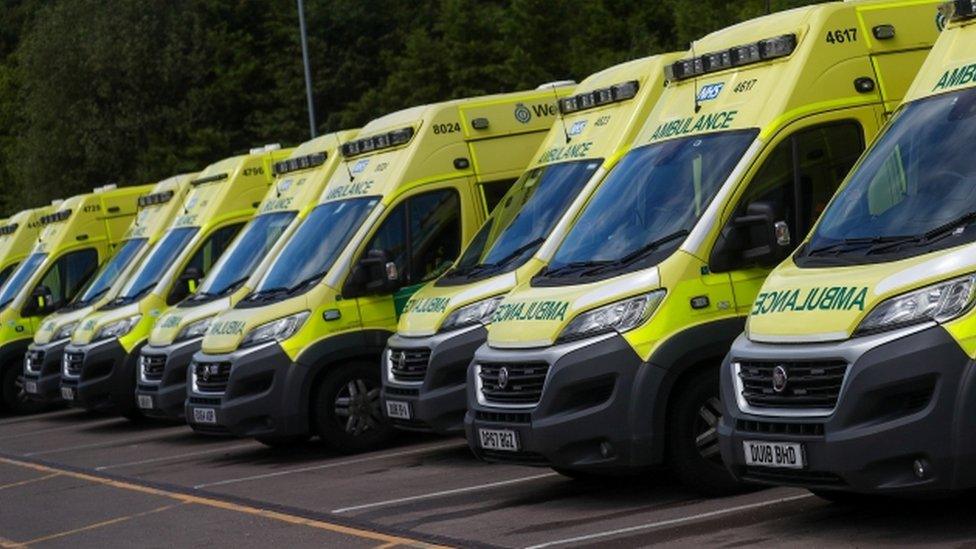
The whistle-blowers included a finance director, medical, operations and quality control staff
Ambulance staff in the West Midlands have had their ability to speak up as whistle-blowers stifled for many years, an independent inquiry has found.
The investigation, commissioned by NHS England, also identified failings in financial governance at West Midlands Ambulance Service (WMAS).
That included the lease contract for the £60m Sandwell Hub, which may result in the tax-payer losing out.
Five senior and former members of staff spoke out to NHS England.
WMAS accepts it has learning to do, but says the report expresses confidence in the service's ability to address the issues raised.
The whistle-blowers included a finance director, medical, operations and quality control staff.
They raised issues through the Freedom to Speak Up scheme with the National NHS England Team.
The inquiry, led by Carole Taylor Brown, had terms of reference which included "Governance, probity, the difficulty of speaking up about these issues and the alleged behaviour of some senior leaders".
They also included whether the leasing of the ambulance hub in Sandwell followed NHS rules and whether additional payments being given to senior members of staff were being authorised in the right way.
The BBC has obtained the recommendations from the report, but despite a Freedom of Information request for the findings of fact, so far NHS England has not released them.
It is known that KPMG, the auditor for WMAS, has said the commissioning of the Sandwell business hub did not follow the ambulance service's own rules and there was a continuing risk to the financial sustainability of the project.
Communications director Murray MacGregor accepted WMAS did not follow the rules to the letter, but said the trust was working to a tight timescale because it wanted the building to be open in time for the Commonwealth Games in Birmingham.
He said it was justified because it now had a state-of-the-art building and was no longer working out of buildings which were not fit for purpose.
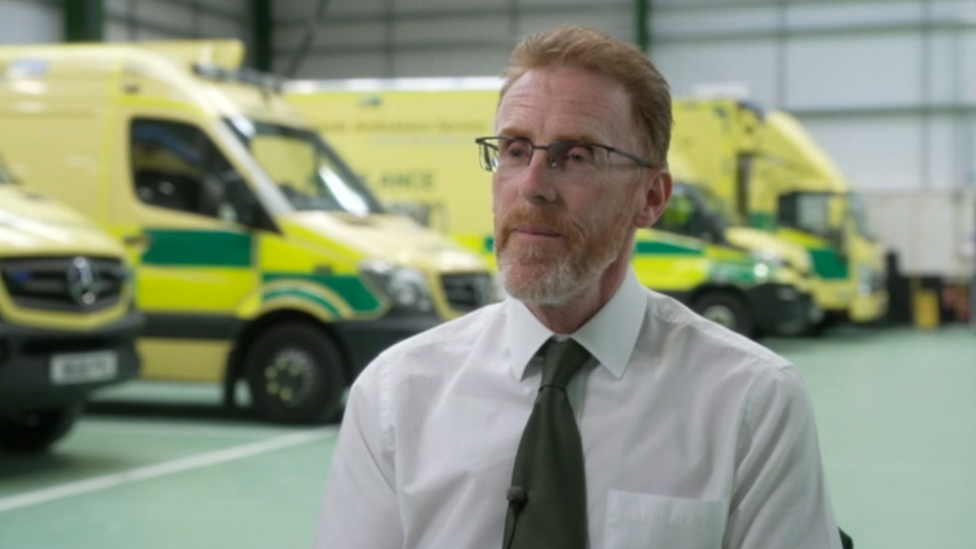
Murray MacGregor said it was clear the ambulance service had learning to do
The independent review recommends tightening up procedures around how additional payments are made to staff.
It also suggests the trust should consider again who chairs the remuneration committee.
At the time of the report, it was the trust chairman.
It said any requests for payment should clearly show the date and scope of the payments once they had been agreed.
WMAS said it had not made any unjustified payments and there was no wrongdoing identified in the report.
The report recommends the trust board assures itself the learning from its own governance review is embedded across the organisation.
'Repeats same findings'
As early as 2010, former medical director Roger Cooke made complaints about WMAS's conduct.
An inquiry that year showed there had been a failure then by the remuneration committee to follow its own rules.
Dr Cooke also gave evidence to the 2022 independent investigation which concluded there may be "systemic issues influencing the speaking up culture in the trust".
Dr Cooke said: "After my whistle-blowing, there was an assurance that issues were going to be addressed.
"More than 10 years on, I see a report that essentially repeats the same findings."
The Carole Taylor Brown 2022 report pointed to an investigation being undertaken by the National Guardian Office (NGO) as being able to give further insight into the problem.
The NGO published its report in February 2023.
It said the culture at ambulance trusts was having a negative impact on workers' ability to speak up.
It heard from some ambulance workers they were experiencing bullying, harassment and discrimination.
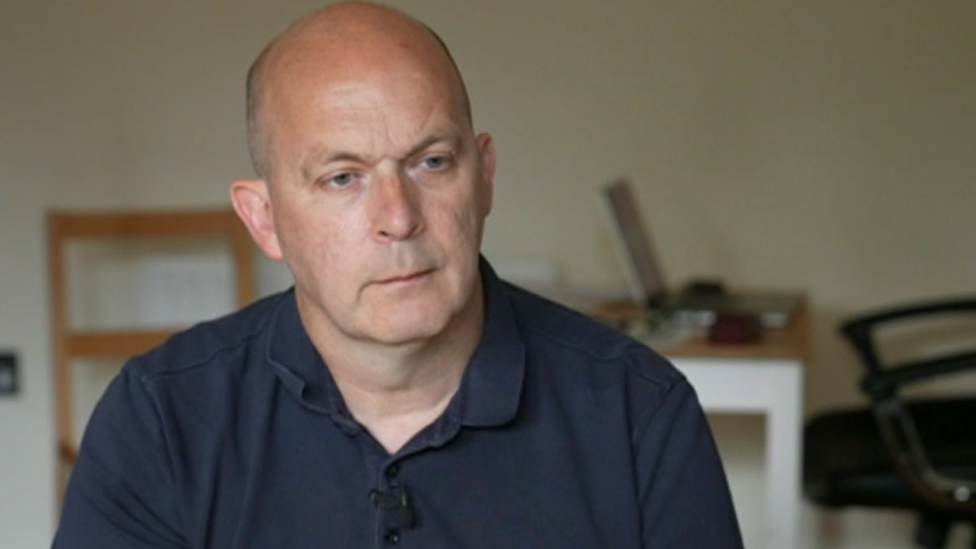
Martin Waite said he feared nothing would be done about his concerns
Martin Waite, a former councillor and WMAS paramedic, is quoted twice in the NGO report and claims a number of ambulance staff gave evidence.
He is quoted as saying: "I felt that nothing would be done if I reported them other than I would lose the goodwill of colleagues on whom I was clinically dependent."
WMAS said Mr Waite's claims were unfounded. He was subsequently suspended for matters unrelated to his claims and resigned before the investigation was completed.
Mr Waite confirmed the suspension and that he had resigned.
WMAS's latest staff survey shows 50 members of staff said they had suffered physical abuse from a manager.
The trust said it had published this data in its staff newsletter as it had no evidence or allegations of any physical abuse on any of its systems, but wanted staff to come forward.
It added: "Bullying has no place in this organisation and we are pleased that two independent reports [from 2010 and 2022] have confirmed that there is no evidence of systemic bullying.
"There is also clear evidence that staff do speak up when they have concerns.
"The independent review was helpful in providing learning that we will use to improve the way we tackle such [an] issue on the rare occasions that it does happen."
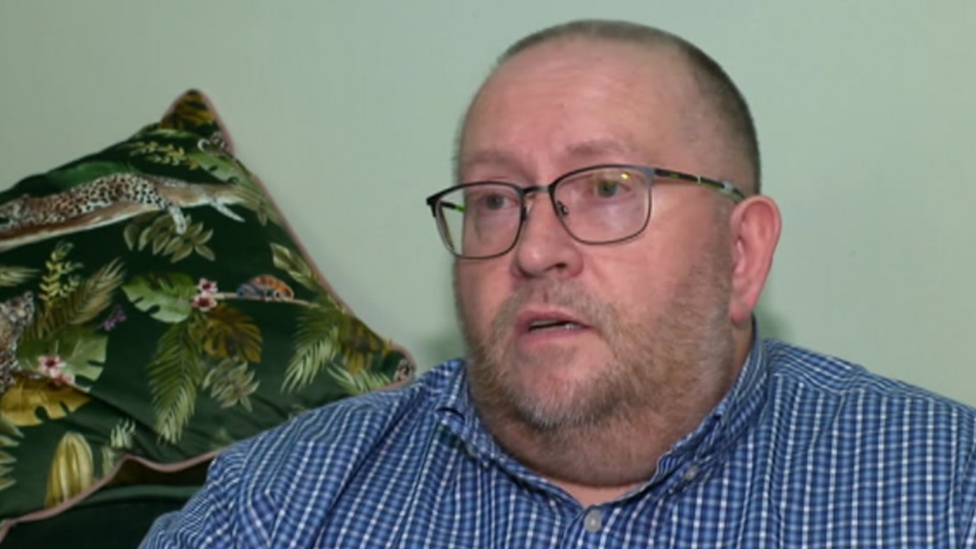
Les Smith resigned after 20 years working for WMAS
Les Smith worked for WMAS for 20 years and became risk manager.
He claims he was so badly treated he tried to jump out of a window at ambulance service headquarters, but was pulled down when discovered by colleagues.
"It was the proudest moment of my life getting the job with the ambulance service. They destroyed me.
"They knew I was hard working, but it didn't matter. You have got to toe the line, it is their way or the highway."
In 2019, the year he resigned, concerns were raised after seven suicides had been recorded over the previous five years.
WMAS said its investigations showed the key common factors in those suicides were relationship and financial issues and they were not work related.
The trust said Mr Smith had requested to come back to work and an internal investigation into his allegations had found no evidence of bullying.
WMAS said it had fully accepted the findings of the Carole Taylor Brown report, adding: "We are fully co-operating with it. As a learning organisation, we want to make sure that we get better at what we do."
The trust has appointed a new executive director with responsibility for freedom to speak up and there are 50 freedom to speak up champions now on the hubs.
"The Freedom to Speak Up Guardian came to speak to our board recently and she praised us for the work we have done and the initiatives that we have put in place," Mr MacGregor said.
He added: "The word systemic is only used once in the report and it says that there may have been systemic problems, not that there are systemic problems.
"The report is clear that this organisation has learning to do, but it is also confident in the ability of the organisation to address the issues."
NHS England said: "The review did not make any recommendations for further areas of investigation, and did not identify a widespread culture of bullying in the organisation.
"It made a series of recommendations for WMAS and NHSE, which are being taken forward.
"WMAS fully co-operated with the review and have accepted the recommendations within it.
"We are working with WMAS and meeting regularly to oversee progress with their improvement plan."

Follow BBC West Midlands on Facebook, external, Twitter, external and Instagram, external. Send your story ideas to: newsonline.westmidlands@bbc.co.uk, external
- Published12 June 2023
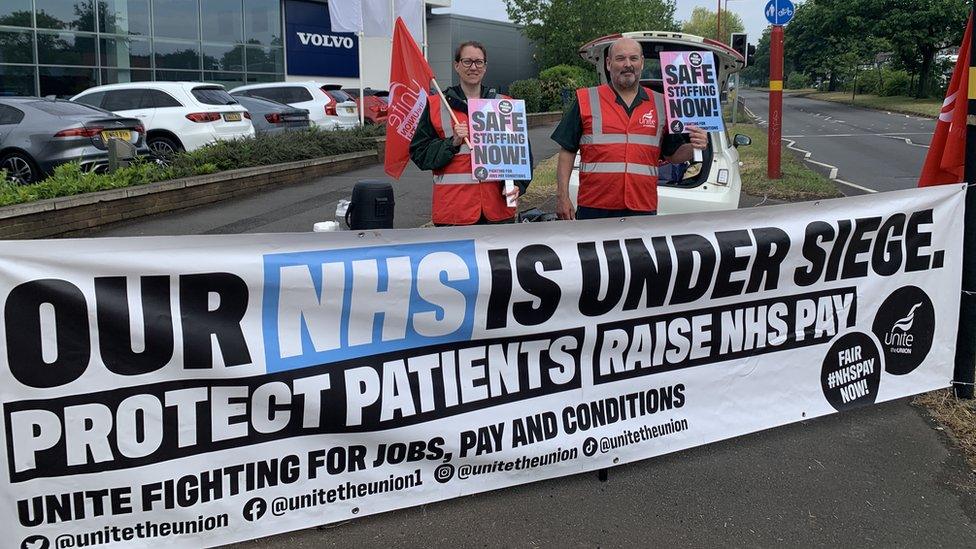
- Published9 June 2023
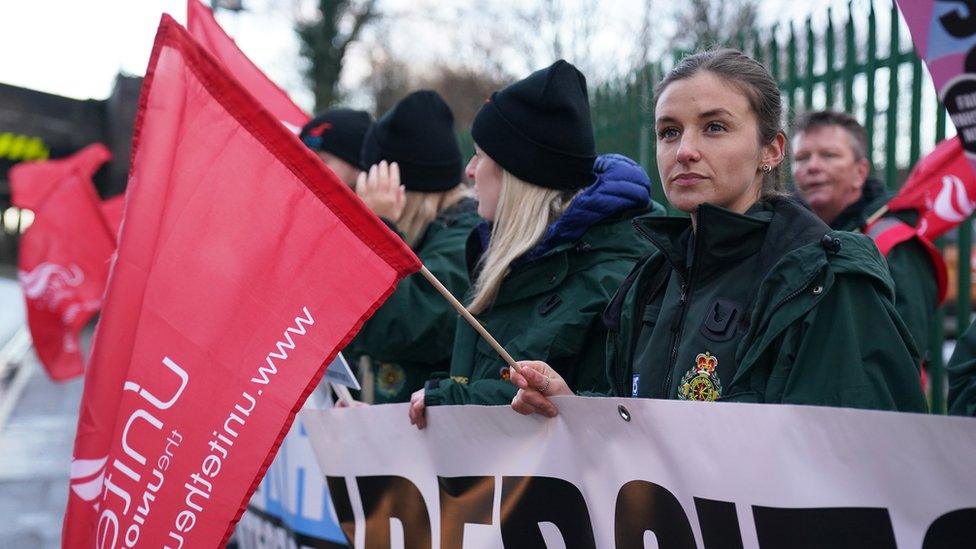
- Published15 March 2023
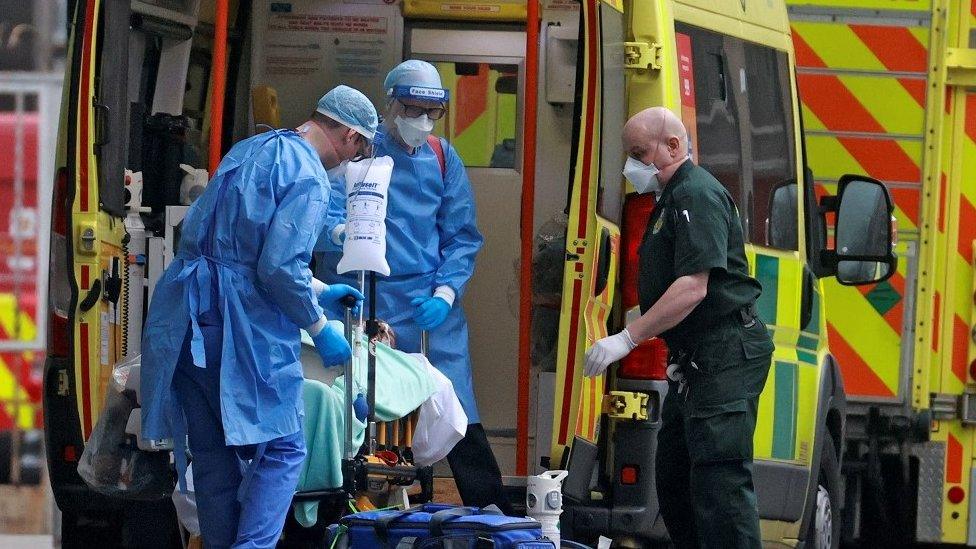
- Published4 January 2023
